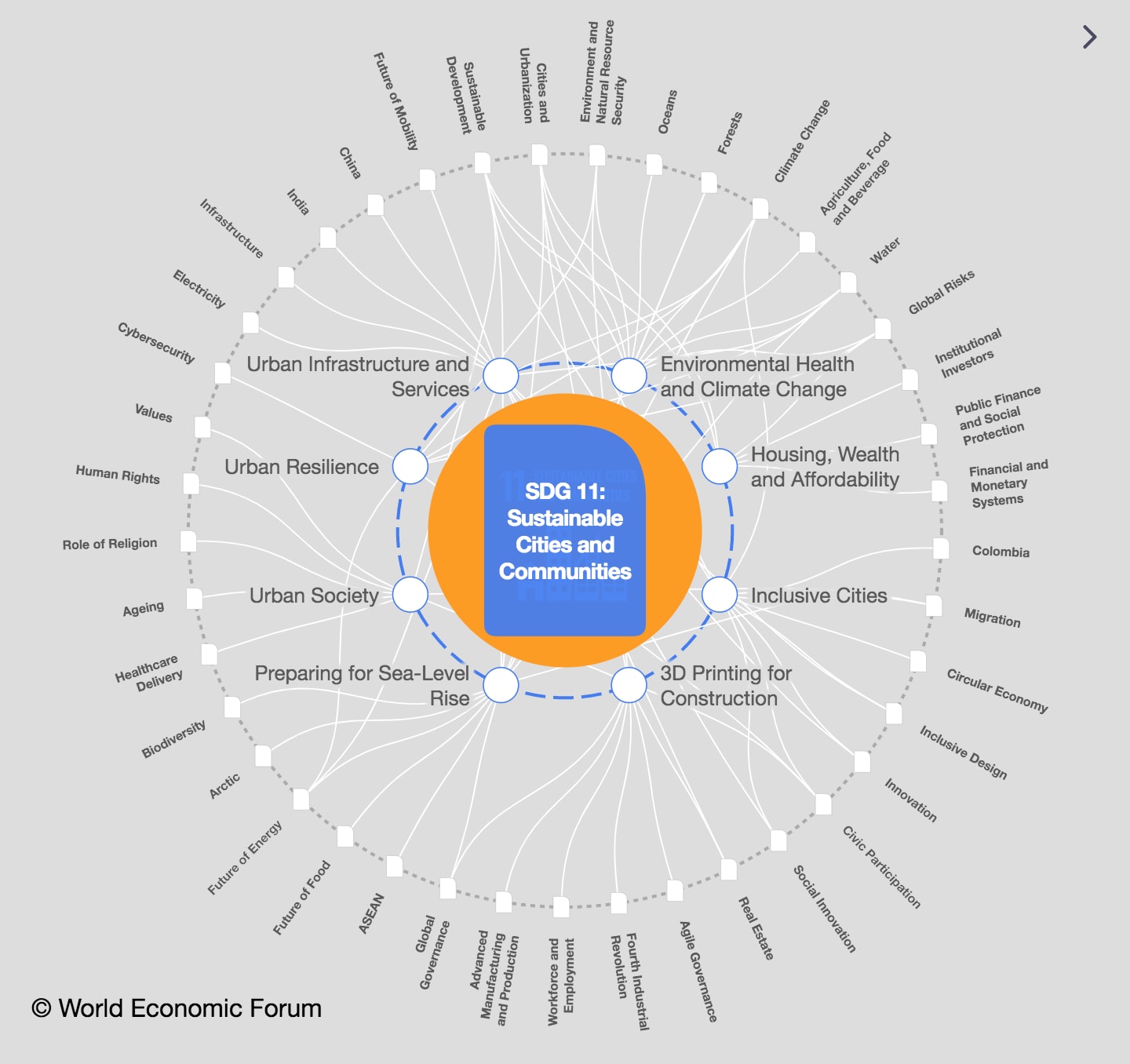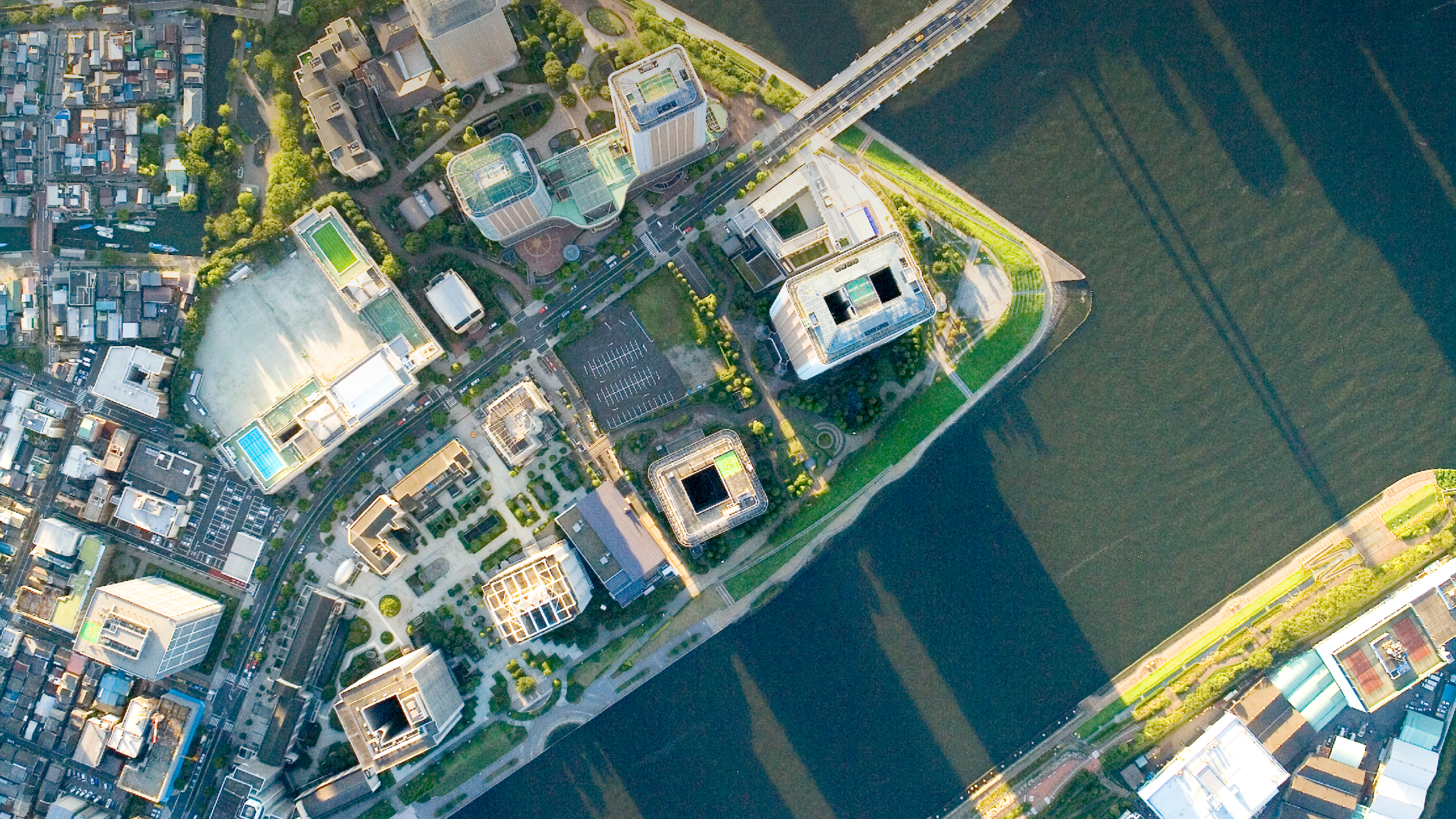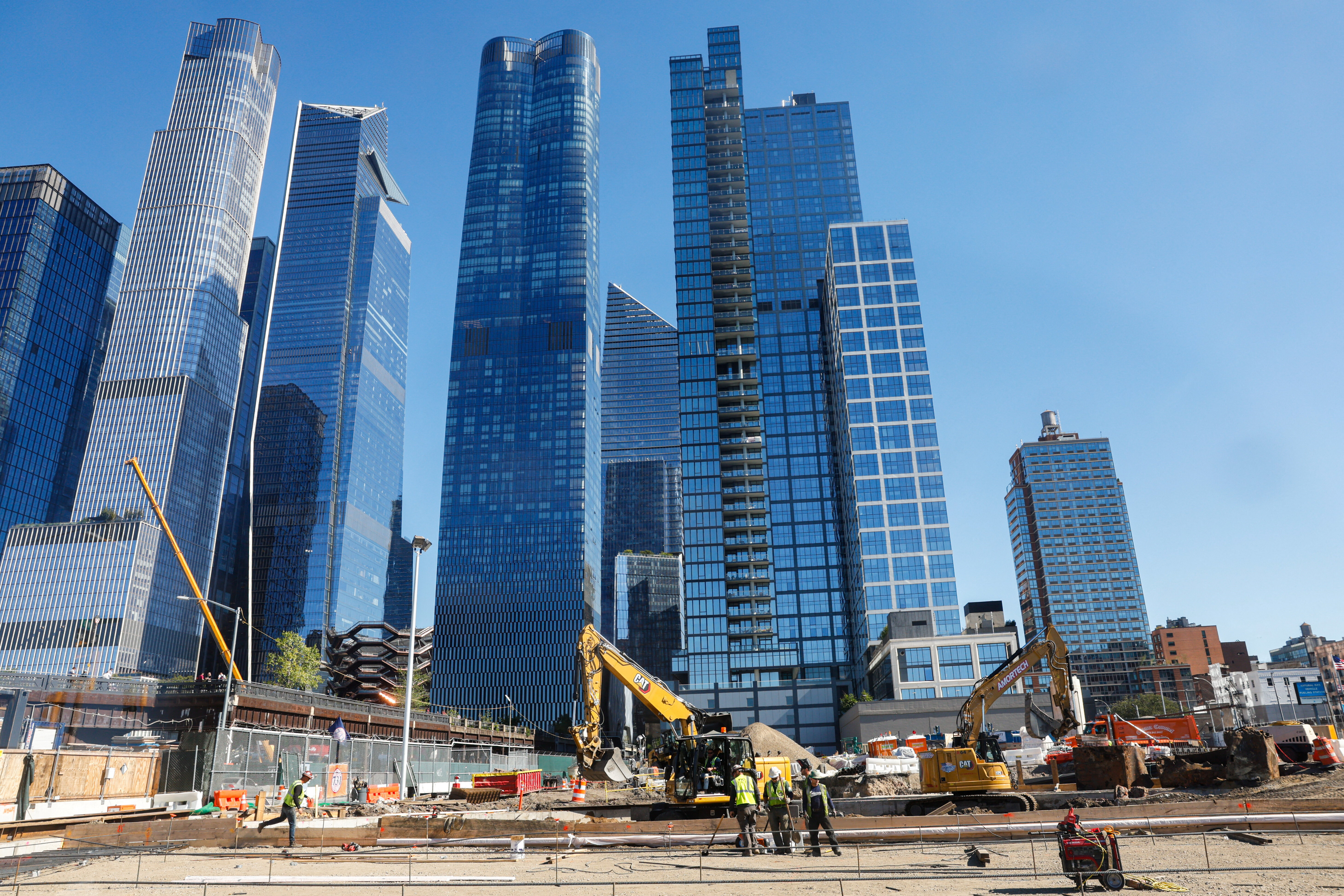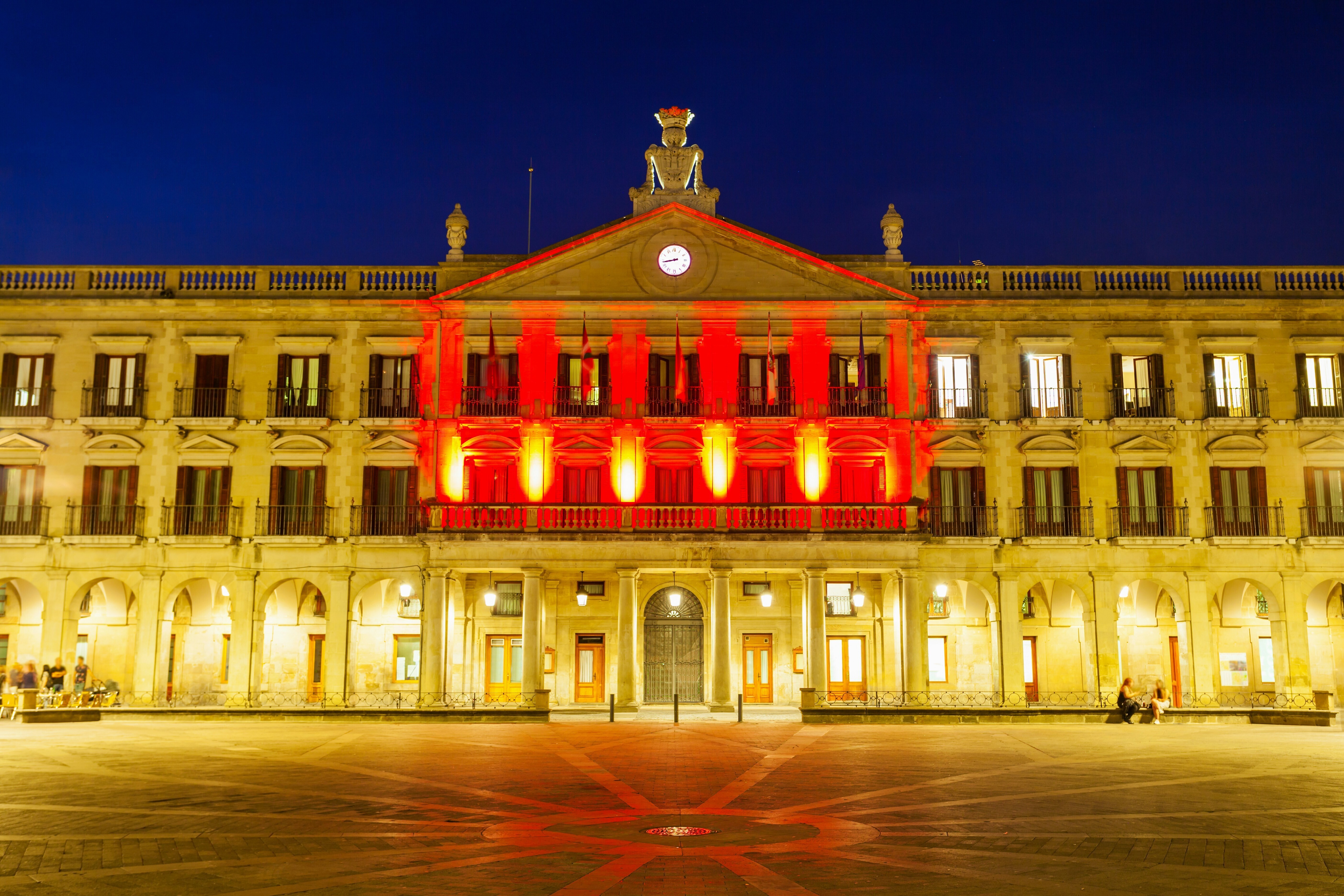This is the urban redesign that will define success for the future city

From corporations and consumption to innovation and experience.
Listen to the article
- Digitization of urban economies and hybrid working are two developments that will require changes to the physical infrastructure of cities. Success depends on it.
- Cities are evolving from a focus on corporations, commuters and consumption to a focus on habitat, innovation and experience.
- A city’s attractiveness won’t be based on tax policy and corporate presence, but on amenities, experience, talent and people.
More urban choices for hybrid city dwellers
We’ve all seen the headlines that warned of the mass urban exodus as office workers flocked to suburbia in search of more space for a home office and lower prices. PwC’s announcement this week that its workforce can be remote on a permanent basis if they wish to is the latest in a string of corporate leanings towards hybrid office work.
Early in the pandemic, there were even several predictions that large cities would not recover from the rapid demographic change and some sentiment on some social media that superstar cities were “dead”.
The reality is less black and white. While urbanization has seen an impact, there has been no uniform shift in urban migration patterns and we’ve yet to see the pandemic’s impact over the long term. Some superstar cities may get even bigger, some smaller cities may attract new residents. Some small cities may actually decrease in population.
What is clear is that for office workers, the pandemic and remote work gave people a stronger sense of choice and has now put more of a premium on quality of life. It’s expected that as much as a quarter of the 160-million-strong U.S. labour force will stay fully remote in the long term, and many more are likely to work remotely a significant part of the time.
What is the World Economic Forum doing about the Fourth Industrial Revolution?
With knock-on effects on ancillary businesses, this will have a profound impact on how urban planners and city leaders approach infrastructure, finance their operations and engage and attract residents.
The name of the game is no longer attracting big HQs to your cities, but attracting remote and hybrid workers. This means investing in proper digital infrastructure but also ensuring that there is a compelling quality of life.
”Different urban scenarios depending on the city
In other continents, the patterns will be different. In Europe and Latin America where urbanization rates have remained near 80%, there will also be increased remote and hybrid working, giving new choices to people but with different effects due to distinct land use, infrastructure and technology patterns.
In China, India, ASEAN and the Middle East, we may see more modest changes, partly due to different sector and job concentrations, and partly because urbanization rates are still accelerating.
In some countries, people have started to experience cities in the same way they stream their entertainment. They are no longer beholden to a location simply because of their occupation, but will take what they want, when they want it. As residents begin to mold their own city experience, that may entail living in a combination of cities. It will require city leaders to adapt their communities to meet emerging priorities.
Digital urban economy: physical consequences for the city
The biggest challenge will be rethinking infrastructure’s place in the built environment. In many cities, with remote work remaining dominant, the use of office space will need to transform. Office space could be reconfigured to prioritize brand building, creative collaboration and training – with a more focused definition of what needs to be done in the office, and what can be done from home or from shared urban spaces.
Urban developers could consider merging office space with amenities such as event spaces, restaurants, and gyms, allowing commercial and residential sectors to complement rather than compete with one another. This will require cities to reimagine the use of public and shared spaces, having them serve multiple purposes which could further increase the demand for updated infrastructure.
Much of this will mean bolstering digital infrastructure and investing in logistics and transportation infrastructure to serve the new digital economy. Examples include the need to increase land use for fulfillment centres and better use of curbsides.
Indeed one interesting feature of digitization is the impact it has on land uses from logistics, fulfilment and distribution, to dark kitchens, data centres and new forms of co-working space.
Flexibility will emerge as key a competitive advantage for cities and they will need to get better at reconfiguration and early collaboration with developers, investors and innovators to monetize land use.
Financing the digital city: new revenues to keep the urban street lights on
With the shifting nature of office and city life, governments will have to reimagine how to efficiently deliver services even when revenue streams are at risk.
Historically, cities have received their funding from a mix of locally generated revenue and transfer payments. In the U.S., locally generated revenues dominate, whereas in other countries, they are more likely to receive transfer payments from other levels of government. The more dependent you are on local revenues, the more your local economy matters. The more you depend on transfer payments from the state or federal government, the more national politics and policy matter.
For cities, finding new sources of revenue will emerge as a bigger issue. As they consider how to navigate levying employment taxes on largely remote workforces, city leaders may lean on new forms of revenue such as congestion taxes for drivers or finding ways to monetize curb activity, or levy digital transactions, as public use shifts away from paying to park.
We’ll also see cities monetize infrastructure differently, involving blended finance models for necessities like energy and utilities. Public-private partnerships will remain a crucial component in financing the development of cities and the increased collaboration between governments and the private sector could expedite the digitization of government services and could lay the groundwork for digitized currency.
Long live the city: Digital equity and quality of life
All cities have had a digital agenda for some time. In the pre-COVID era they were oriented around efficiency and optimization but now it is clear that supporting the new hybrid workforce could impact a city’s economic development strategy as digital equity and quality of life are emerging as critical factors in determining worker relocation choice.
City leaders must now prioritize inclusive technology to avoid further marginalizing those who have little access. If captured strategically, it could stimulate local job creation, raise local incomes and grow local economies making “broadband for all” plans, like the NYC Internet for All plan, more important than ever. And of course this will become a competition reality for some cities who see the rise of the hybrid worker as a new competitive target.
How is the World Economic Forum supporting the development of cities and communities globally?
To adapt, cities will also need to collaborate with one another and explore ways to be mutually beneficial. This is particularly important as some people choose to move between multiple cities for different lengths of time throughout a year. Successful cities will cooperate to create “corridors” to take advantage of this freedom of movement. We can foresee groups of cities seeking to offer multiple location packages to workers and employers.
The name of the game is no longer attracting big HQs to your cities, but attracting remote and hybrid workers. This means investing in proper digital infrastructure but also ensuring that there is a compelling quality of life. A city’s attractiveness won’t be based on tax policy and corporate presence, but on amenities, experience, talent and people.
As residents begin to self-select which cities to move to, leaders will need to prioritize unique partnerships, innovative technology, and inclusive government services to ensure that their city remains a top pick for residents.
Don't miss any update on this topic
Create a free account and access your personalized content collection with our latest publications and analyses.
License and Republishing
World Economic Forum articles may be republished in accordance with the Creative Commons Attribution-NonCommercial-NoDerivatives 4.0 International Public License, and in accordance with our Terms of Use.
The views expressed in this article are those of the author alone and not the World Economic Forum.
Stay up to date:
SDG 11: Sustainable Cities and Communities
Related topics:
Forum Stories newsletter
Bringing you weekly curated insights and analysis on the global issues that matter.








